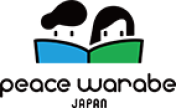[Kenya]ALONG THE TRANSIT CORRIDORS PWJ ‘s intricate contribution to Kakuma and Kalobeyei Reception Centers
Akatch (a pseudonym), a 23-year-old mother of two, scrambles early every morning to find water for her daily needs at a reception center in the Kakuma refugee camp in the arid northwest of Kenya, and waits in line for food rations with a ration card to feed herself and her screaming children. The Akatch, along with 11 other families, are staying in a communal quarter. They are families who have come a long way for refuge, exile, or simply to improve their child’s educational opportunities. Akatch lost her livelihood when her husband, who was self-employed in South Sudan, died. The persecution against her also became severe that she chose to move to Kakuma where some of her family members were already living.
The reception center is a place where refugees like Akatch stay for about a month before they start living in the camp community. Here, each refugee family is surveyed about their health condition and the background they fled from in order to find out what kind of support they need, and an orientation about living in the refugee camp is given. The center provides them with sleeping bags, blankets, buckets, soap, sanitary products, and daily meals. Due to the unstable security, political situation, and drought, refugees from South Sudan and other neighboring countries keep coming to the center.
There are only 20 latrines for more than 2,000 residents, but there is not only no money to build new latrines but also no land to build them. The only way to maintain sanitation in such a situation is to rely on the understanding and actions of the people, which is not easy as many of the refugees are exhausted after long journeys or have fled from areas where they are not accustomed to using toilets.
Hygiene promoters, selected from the refugees living in the camp, visits the center daily to check the toilets and water points to make sure that hygiene is maintained. Promoters discuss with them about proper use of toilets, hand washing, hygiene for young children and women during menstruation, waste management, etc. The daily hygiene promotion activities by the refugee hygiene promoters, who use their own experiences to reach out to new refugees, have steadily improved hygiene behavior, reducing open defecation, cleaning up communal areas that used to be littered with garbage, and improving hygiene. Malimingi (pseudonym), who works as a hygiene promoter and South Sudanese refugees, said, “Before, there used to be human fecal matters everywhere, but now it has dramatically decreased. So now I can sit under a tree and discuss sanitation and hygiene with the people here. She said.
Peace Winds Japan will continue to support people who have fled their homelands so that they can live in a hygienic environment with dignity. Your support is greatly appreciated.
Peace Winds Japan Kakuma Office WASH Officer Trizabel Oliwa
This project is funded by European Civil Protection and Humanitarian Aid Operations(ECHO) and implemented jointly with Norwegian Refugee Council(NRC)







![[Kenya]ALONG THE TRANSIT CORRIDORS PWJ ‘s intricate contribution to Kakuma and Kalobeyei Reception Centers 1 Hygiene promoters, selected from the refugees living in the camp](https://en-peace-winds-org.s3.ap-northeast-1.amazonaws.com/wp-content/uploads/2022/10/09120153/Hygiene-promoters-selected-from-the-refugees-living-in-the-camp.jpg)
![[Kenya]ALONG THE TRANSIT CORRIDORS PWJ ‘s intricate contribution to Kakuma and Kalobeyei Reception Centers 2 Refugee women and hygiene promoters discussing on menstrual hygiene management](https://en-peace-winds-org.s3.ap-northeast-1.amazonaws.com/wp-content/uploads/2022/10/09120153/Refugee-women-and-hygiene-promoters-discussing-on-menstrual-hygiene-management.jpg)
![[Kenya]ALONG THE TRANSIT CORRIDORS PWJ ‘s intricate contribution to Kakuma and Kalobeyei Reception Centers 3 Hand washing facilities with awareness messages constructed by PWJ](https://en-peace-winds-org.s3.ap-northeast-1.amazonaws.com/wp-content/uploads/2022/10/09120153/Hand-washing-facilities-with-awareness-messages-constructed-by-PWJ.jpg)